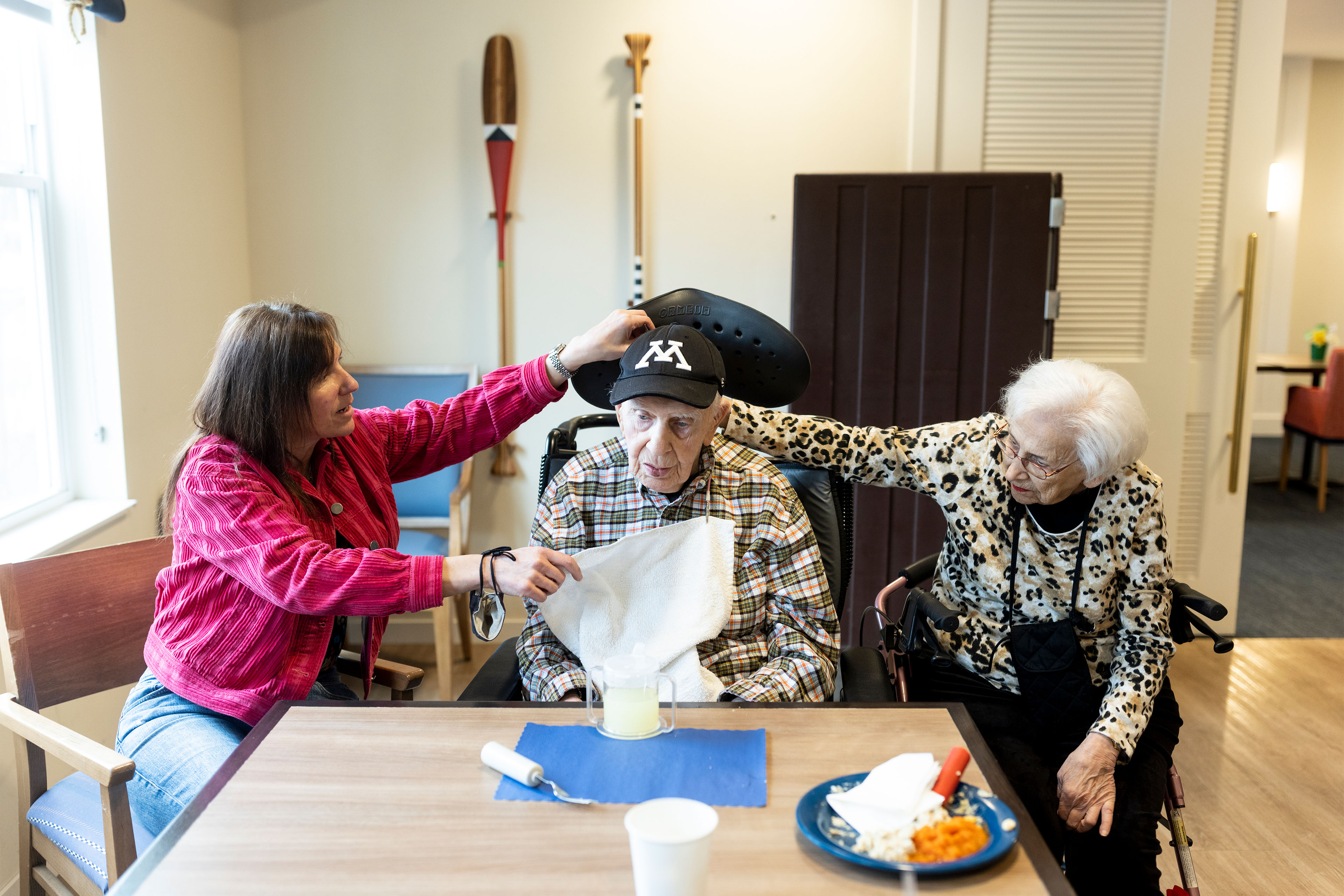Recognizing Just How Aided Living Supports Individuals With Mental Deterioration Treatment Needs
Aided living facilities are increasingly identified for their essential function in resolving the intricate treatment requirements of people with dementia. By supplying an organized yet nurturing setting, these facilities not only promote security and health yet also promote a sense of freedom with personalized care strategies.
Summary of Mental Deterioration Treatment
Mental deterioration care is increasingly vital as the frequency of dementia-related conditions climbs among maturing populaces. This growing demographic trend requires a thorough understanding of dementia and the various techniques to care. Mental deterioration incorporates a variety of cognitive disabilities that disrupt every day life, affecting memory, reasoning, and communication abilities. The condition can differ dramatically in its discussion, calling for tailored treatment strategies to meet specific demands.
Reliable mental deterioration care entails a multidisciplinary method, integrating medical, mental, and social assistance. Health care specialists, caregivers, and family members have to collaborate to create a nurturing environment that advertises the wellness of people with mental deterioration. Secret elements of dementia treatment include individualized care strategies, cognitive stimulation treatments, and behavior interventions aimed at boosting top quality of life.
In addition, it is necessary to identify the psychological and emotional obstacles dealt with by both clients and caregivers. Education and training for caregivers play a crucial function in cultivating understanding and compassion, thereby enhancing communications with those affected by dementia. As the need for mental deterioration care remains to climb, the emphasis has to stay on delivering compassionate, person-centered care that respects the dignity and choices of individuals coping with this problem.
(Dementia Care Charlotte)
Function of Assisted Living Facilities
Helped living facilities play a crucial function in giving take care of people with mental deterioration, providing a supportive atmosphere that balances independence with the needed support. These facilities are made to satisfy the distinct requirements of residents, advertising a sense of neighborhood while ensuring safety and security and well-being.
In an assisted living setup, skilled personnel supply perpetual support, aiding with day-to-day tasks such as showering, clothing, and medicine management. This degree of care is critical for individuals with dementia, who may fight with these tasks because of cognitive decline. In addition, centers often integrate memory-enhancing programs and social tasks customized to stimulate cognitive functioning and motivate social communication.
The physical atmosphere of assisted living centers is likewise maximized for safety, featuring safe and secure entryways, well-lit pathways, and clear signage to help citizens navigate their surroundings. These neighborhoods promote a sense of belonging, decreasing the sensations of isolation that individuals with mental deterioration may experience.
Personalized Treatment Program
To ensure that each resident obtains the most suitable treatment, personalized treatment strategies are important in nursing home for people with mental deterioration. These plans are customized to fulfill the distinct requirements, preferences, and difficulties encountered by each citizen, advertising their dignity and high quality of life.
The advancement of an individualized care strategy typically starts with a comprehensive assessment performed by medical care professionals. Assisted Living. This analysis reviews the person's cognitive capacities, physical health and wellness, psychological health, and social preferences. Input from family members and the resident themselves is crucial, as it offers beneficial insights into their background, routines, and personal rate of interests
When the evaluation is full, a multidisciplinary team works together to develop a care strategy that details particular goals and treatments. This might include drug monitoring, daily living help, and behavior strategies customized to reduce anxiety or frustration.
Routine evaluations and updates to the treatment plan ensure it remains relevant as the individual's problem advances. Assisted Living. By prioritizing customized care, assisted living facilities can improve the general health of residents with dementia, fostering an environment that values their individuality while addressing their treatment requires properly
Involving Activities and Socialization
Involving tasks and socialization play a vital role in boosting the top quality of life for citizens with dementia in nursing home. These activities are developed to stimulate cognitive feature, promote emotional health, and foster connections among homeowners. Organized programs, such as art therapy, songs sessions, and memory therapy, offer opportunities for people to express themselves artistically while likewise activating positive memories.
Socializing is similarly important, as it fights sensations of isolation and isolation that can go along with mental deterioration. Group tasks, consisting of games, team outings, and common dining, encourage communication and help citizens construct encouraging connections with peers and caretakers. This feeling of neighborhood not just improves their everyday experiences yet likewise adds to a more secure emotional setting.
Additionally, involving activities can be customized to individual preferences and cognitive degrees, making sure that each resident can take part meaningfully. By developing an environment that focuses on involvement and social interaction, helped living centers can dramatically enhance homeowners' overall mental wellness, fostering a sense of function and belonging. Inevitably, these initiatives are crucial components of extensive mental deterioration treatment, significantly impacting citizens' total health and joy.
Benefits of Community Support

Additionally, area assistance promotes social communication, which is crucial for cognitive and emotional wellness. Involving with peers and participating in team activities can enhance state of mind and encourage memory, adding to a better sense of belonging. This social engagement is crucial, as solitude and seclusion can worsen cognitive decline.

(Dementia Care Charlotte)
Conclusion
In verdict, aided living centers offer as vital environments for people with mental deterioration, offering organized assistance that cultivates both freedom and safety and security. The execution of individualized treatment strategies makes sure that each resident's distinct needs are met, while engaging tasks advertise social communication and cognitive interaction.